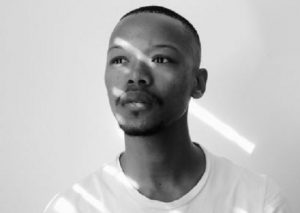(THIS ARTICLE IS MACHINE TRANSLATED by Google from Norwegian)
Nakhane Touré:
Piggy Boy’s Blues
Jacana, 2015
Édouard Louis:
The history of violence
Translated by Egil Halmøy
Please, 2016
"What in all his known faculties could help him assuage a feeling so vague (but heavy – like a dense fog obscuring the flow of a mighty river) that it had no name?"
In June, the British voted out of the EU, carried by waves of protest that swept across Europe, both from the right and the left. Brexit cemented the divide that has arisen between what one roughly calls the people and the elite, and the spiteful reaction of the Remain camp illustrates the crux of the problem. Instead of starting from what the people actually feel, laws and rules are set over their heads, in an inaccessible language, designed in confined spaces. When people oppose these rules, they are accused of being reactionary and illiberal. It is beginning to become uncomfortably clear – as Slavoj Zizek pointed out in his brilliant essay in the August issue of Le Monde Diplomatique – that the fluid, cosmopolitan, EU-idealized identity is reserved and made possible for a very small group, and that this creates both religious and political protest movements.
What Zizek also temporarily points out, like writers Édouard Louis and Nakhane Touré, is that the fear of pervasive identities is not due to moral decay or stupidity, but to historical and material conditions. Moreover, when the fluid gender identity and sexuality are linked to the ideals the West likes to associate with, namely freedom, equality and democracy, this also becomes an unbearable double standard for a large part of the world's population, and especially those belonging to the former colonies, which for example, South Africa. For the truth is that we live in a time where belonging and identity are more important than a long time ago – and neither the EU, the US nor Norway are making any significant effort to combat this (something I got to experience in passport control at the Malmö-Copenhagen border this summer It is obviously not so dangerous to forget your passport when you are blonde and speak Norwegian).

Lumpenproletariat. That these two young voices thematize homophobia and hate crime in countries that have some of the most liberal constitutions in their respective continents, only emphasizes the point above. All available means can be used for police and surveillance, but the problem will not disappear unless attitudes change, and attitudes can not be passed on to people. In Touré's South Africa, LGBTI grassroots movements are actively working against hate crime, and although the authorities have been rightly accused of turning the other cheek in several of the cases, they have introduced measures such as the Rapid Response Team to ensure that such crime are properly investigated and that the perpetrators are prosecuted. Nevertheless, homophobia is increasing, and the South African LGBTI website Out was able to point to new and disappointing statistics in June. Residents of the various provinces were asked whether they thought it was okay to use violence against non-heterosexual people, and for example in the Gauteng province (with the big cities of Johannesburg and Pretoria), 14 percent supported the use of violence. The number has risen one percent from the previous survey in 2013, and it makes up an alarming number of people when 14 percent of the province's inhabitants are as many as 1,26 million.
Piggy Boy’s Blues is one of the first South African novels dealing with homosexuality, and only by reading reviews of the book can one feel the fear of touch on the body.
In 2013, English The Telegraph presented figures on how many people would be uncomfortable with having a gay neighbor. In this comprehensive survey, the country that since the revolution in 1789 has allowed homosexuality came out worst in all of Western Europe. In France, 28,8 percent answered that they would not like to have a gay neighbor. In comparison, 3,6 per cent of Swedes answered the same.
France, like South Africa, has growing class divisions and a growing group of working-class people, what Marx described as a rag proletariat (Lumpenproletariat). The young writer Édouard Louis grew up in such an environment, in Hallencourt in northern France. The city previously housed a large textile production, but has not been able to rise after the businesses were closed in the 1950s. In the controversial debut novel Farewell to Eddy Bellegueule Louis portrays a homophobic culture of violence that the French do not like to admit, and for him a class trip is the only way out of misery. IN The history of violence he continues to use his own biography, and here he tells of an episode of rape he has been subjected to in reality. The story is told both through the autobiographical character Édouard Louis and through sister Clara.

Masculinity. The history of violence is no less controversial than the debut novel, especially not because the rapist is of Kabyle origin. The meeting between the two starts romantically, but after a night together, the perpetrator changes his personality, and he both rapes and tries to kill Louis. In a mix of different narratives, the author shows how Reda struggles between his orientation and the traditional masculine identity. The violence can be interpreted as an attempt to regain the masculinity that is threatened in the non-heterosexual relationship. Floating gender identities and sexualities threaten the masculine / feminine dichotomy and reveal that it is constructed. Reda fights a battle between the firm, secure construction and the more fluid gender identity – Louis has ended up in the crossfire: “He both desires and abhors his desire. Now he wants to explain away what he has done to you. He wants you to avenge his desire. ”
In the debut book of the South African author and musician Nakhane Touré, it is the protagonist himself who fights for a place to be free and self-accepting. Davide grew up in a traditional Xhosa society, and he has left home due to a conflict we only know the contours of. He visits his uncle in the small town of Alice, located in the east of the Cape Province. The uncle lives with one of the city's few white men, and it is his nickname that is used in the novel's title: Piggy Boy’s Blues. In a subtle and subdued language as beautiful as the province of Cape Town itself, Touré depicts the tension that arises between Davide and his uncle's girlfriend (whose real name is Gray, he never gives his first name). But Davide denies that there is any attraction between them, and in frustration and anger this ends in a similar way as it does between Édouard and Reda, even though the motive is different.
Piggy Boy’s Blues is one of the first South African novels dealing with homosexuality, and only by reading reviews of the book can one feel the touch anxiety on the body. The review in one of South Africa's largest newspapers, Mail & Guardian, only touches on the book's most central theme, as the critic writes that "there is also the normalization of gay sex", which is difficult to agree on when the rape scene is the only explicit depiction of sex in the book. While Louis has accepted his gay orientation and tries to resist the intolerance from parts of the outside world, Davide floats in a limbo that makes him unable to find any direction in life.
Surrounded by homophobic and unreflective attitudes, Louis experiences that "language lies" and that "they will lock you in a story that is not yours".
No moralism. Both authors show how important it is to language their experiences and how language is shaped by the moral consensus of the outside world. Literature becomes an opportunity to escape what Roland Barthe calls doxa, which is the discourse of morally acceptable and "common sense." In a mixture of dreams, performances, storytelling and dialogue, the two young men tentatively plow a hilly landscape, giving readers insight not only into sexuality and the complexity of rape (these books can also be read to enrich the polemical rape debate that has taken place afterwards of the Hemsedal case), but also in the meaning of language for self-understanding and acceptance. Surrounded by homophobic and unreflective attitudes, Louis experiences that "language lies" and that "they will lock you in a story that is not yours". The fact that the sister's version is becoming less and less visible in the text is precisely a sign that he is at least getting a little out of the narrative prison through writing.
It is more difficult for Davide, who, like Touré himself, has been a Christian and open opponent of homosexuality: "It seems so long ago that I was one of them. Except, I was not proud. I was impatient to get out of those clothes. I boasted my averseness to the ritual and ceremony. » In the novel's stories about the family, he tells of men who kiss and cuddle with each other, and then fight afterwards. This also happens in Louis' Hallencourt, where some of the men also start sleeping with each other, at the same time as they bully gays. It's so easy to point to double standards and call them idiots, but let's look at the reasons.
For Louis and Touré, something the Remain supporters and the West's elite can not do. Without moralizing, they show that neither homophobia, masculinity, femininity, nor racism for that matter are signs that some people are worse than others. They show how the self-proclaimed liberal and fluid Western identity is perceived as a mockery and a hypocrisy against those who are constantly reminded of their place in society, such as immigrants and refugees. They also show that it is our cultural and historical baggage that primarily shapes our attitudes, and some attitudes have served as social pillars, without necessarily meaning that it is right to support them. However, tearing them down without replacing them with new ones is a very bad idea.


